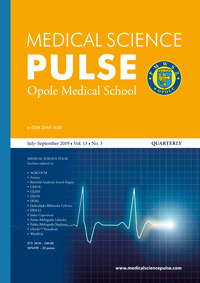Corrective factors of intestinal microflora disorders in the perinatal period.
Corrective factors of intestinal microflora disorders in the perinatal period.
Author(s): Paulina Pisaniak, Margaret T. Huflejt, Piotr Jerzy Gurowiec, Dorota OzgaSubject(s): Health and medicine and law
Published by: Państwowa Medyczna Wyższa Szkoła Zawodowa w Opolu
Keywords: caesarean section; intenstial microflora; vaginal seeding; breastfeeding; probiotics
Summary/Abstract: Intestinal microflora is found at approximately 104 bacteria per ml of intestinal fluid. Although this ecosystem is very diverse with dynamic changes taking place within it, there is a certain stability in the type and number of species, referred to as the core microbiome, found in 95% of the human population. Genetic variation of microorganisms is relatively small, and their functions are strictly defined and highly conservative. The microbiome exists symbiotically with the host, protecting it against colonization by pathogenic microorganisms, providing essential metabolites, and stimulating the immune system. Colonization begins prenatally and its development is greatly influenced by the course of pregnancy, method of delivery, food supplied to the child during the first moments of life, and post-birth environment. The appropriate intestinal microflora composition is a key determinant of health and homeostasis, and any intestinal dysbiosis can be associated later in life with the development of obesity, diabetes, allergies or cancer. Due to the increasing number of hospitalised pregnancies and deliveries, affecting the intestinal microflora of a newborn, efforts are being made to minimize this process and restore the newborn’s microbiome. The use of the Vaginal seeding procedure raises up great hopes, but also some fears concerning its safety. Some very simple and most natural factors have been recently also appreciated and promoted, such as breastfeeding or direct contact of the baby’s skin with the mother’s skin, which are allies to probiotic bacteria. The purpose of this paper is to emphasize the importance of microbial colonization of the human body and to present the latest and most effective procedures that are designed to correct the existing dysbiosis or to reduce the risk of its occurrence. The literature for the compilation of this study has been obtained from databases such as PubMed, Google Scholar, Web of Science.
Journal: Medical Science Pulse
- Issue Year: 13/2019
- Issue No: 3
- Page Range: 68-71
- Page Count: 4
- Language: English

